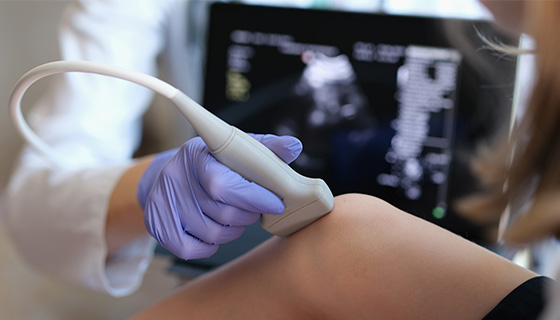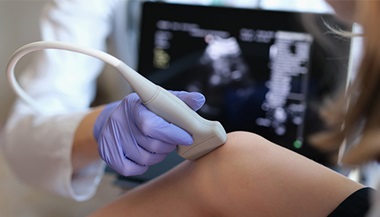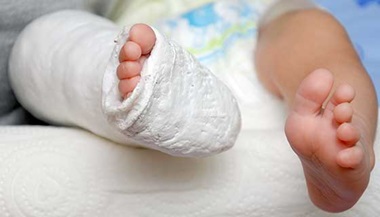Congenital Central Hypoventilation Syndrome
What is congenital central hypoventilation syndrome?
Congenital central hypoventilation syndrome (CCHS), also known as “Ondine’s curse,” is a rare neurological disorder characterized by inadequate breathing during sleep and in more severely affected individuals, during waking periods as well. This disorder is associated with a malfunction of the nerves that control involuntary body functions and abnormal development of early embryonic cells that form the spinal cord.
Symptoms
Infants born with CCHS may have the following symptoms:
- Poor breathing or complete lack of spontaneous breathing, especially during sleep
- Abnormal pupils
- Feeding difficulty due to acid reflux and decreased intestinal motility
- Absent or impaired bowel function (Hirschsprung’s disease)
Diagnosis
A sleep study is performed to determine how severe the breathing difficulty is. Respiratory, cardiac and neurological tests are done to rule out other disorders. Early diagnosis and treatment are important to prevent serious complications caused by periods of low or no oxygen.
Treatment
Treatment focuses on providing breathing support, usually through the use of a respirator, or ventilator. Some children with CCHS will need a ventilator 24 hours per day; others may only need breathing help when sleeping. In some individuals, a surgical implant in the diaphragm muscle can allow electrical stimulation of the muscle to control breathing.
Prognosis
Children with CCHS are able to lead active lives but need close supervision while swimming or playing in pools, since their bodies may “forget” to breathe while underwater. CCHS is a lifelong condition, but with proper treatment it does not alter life expectancy.





